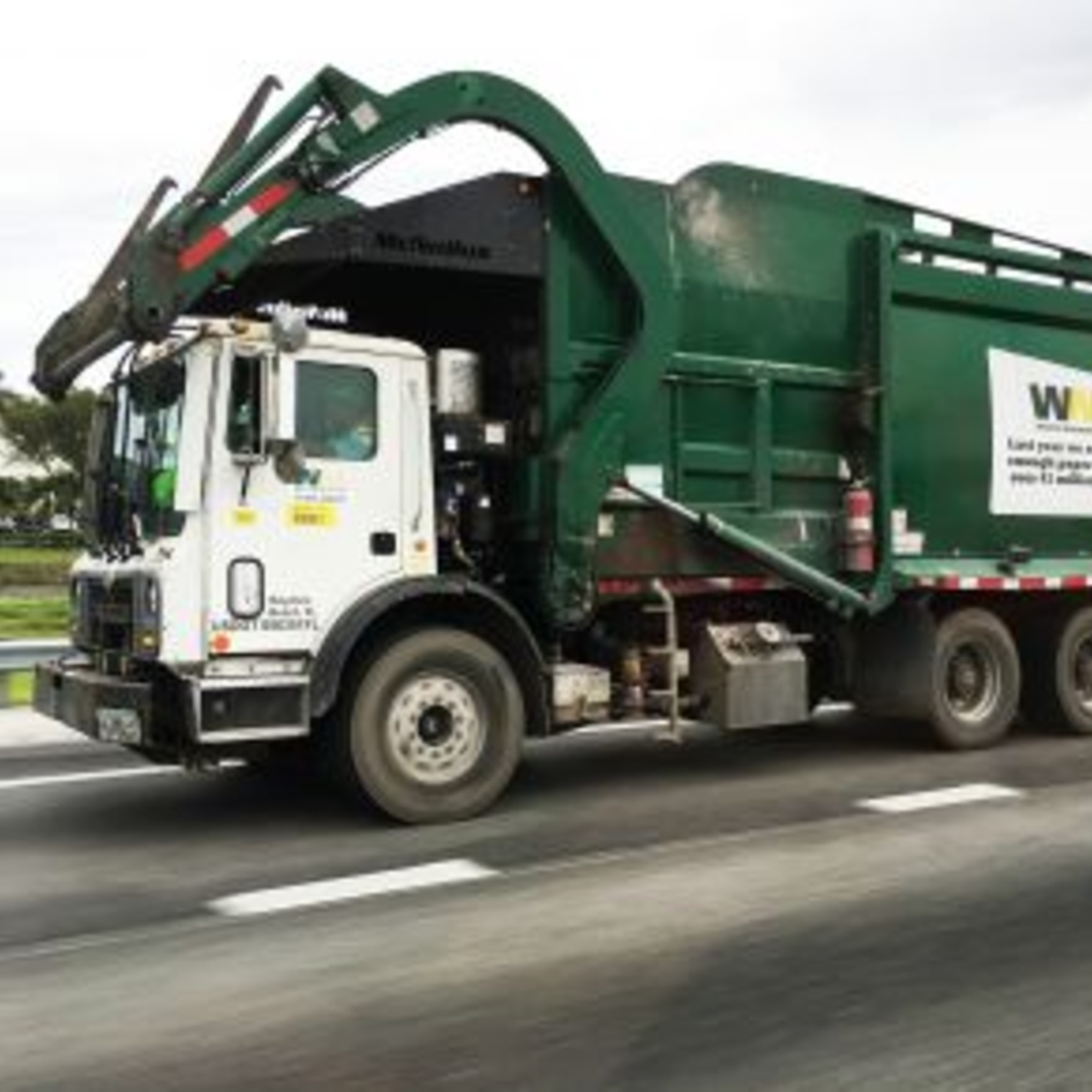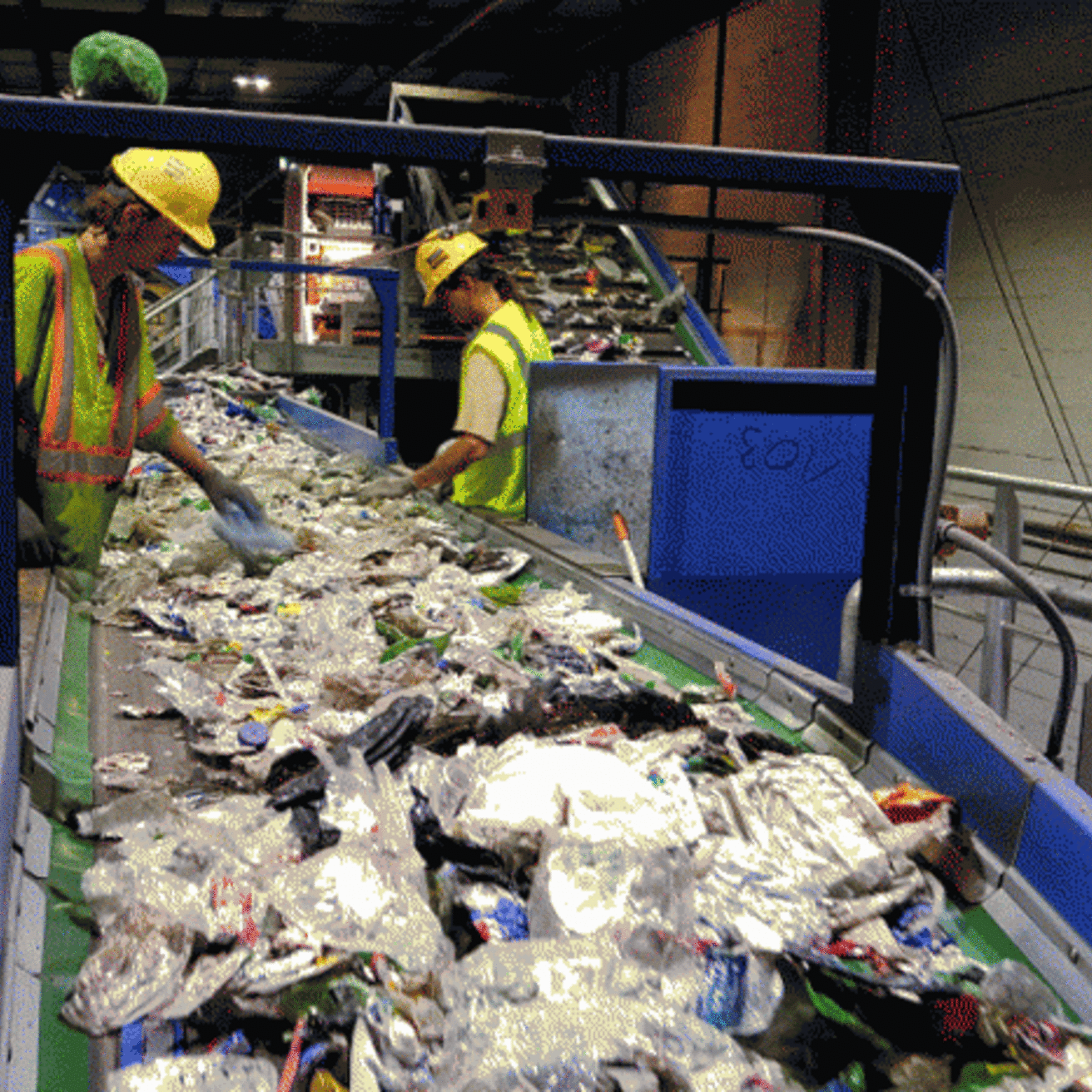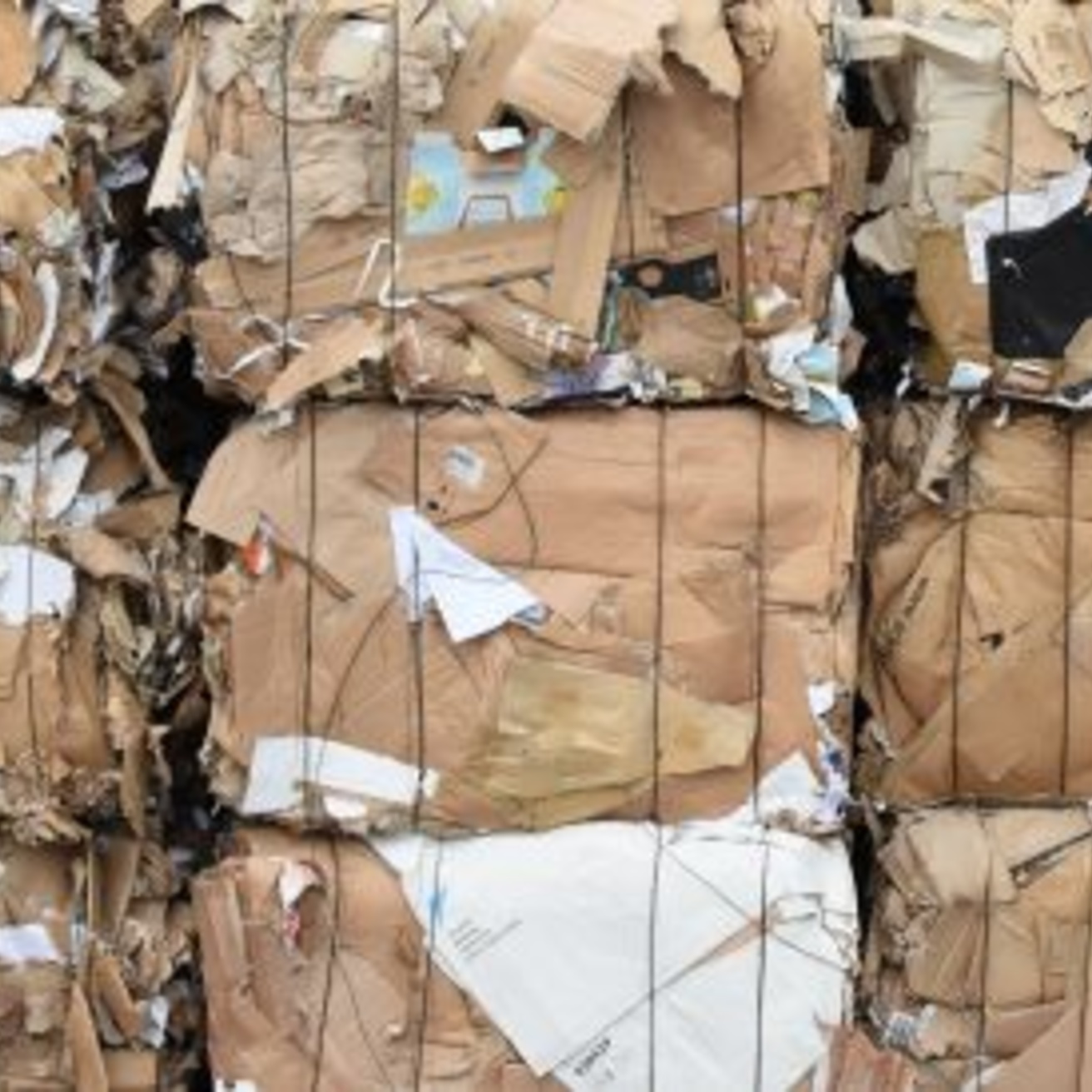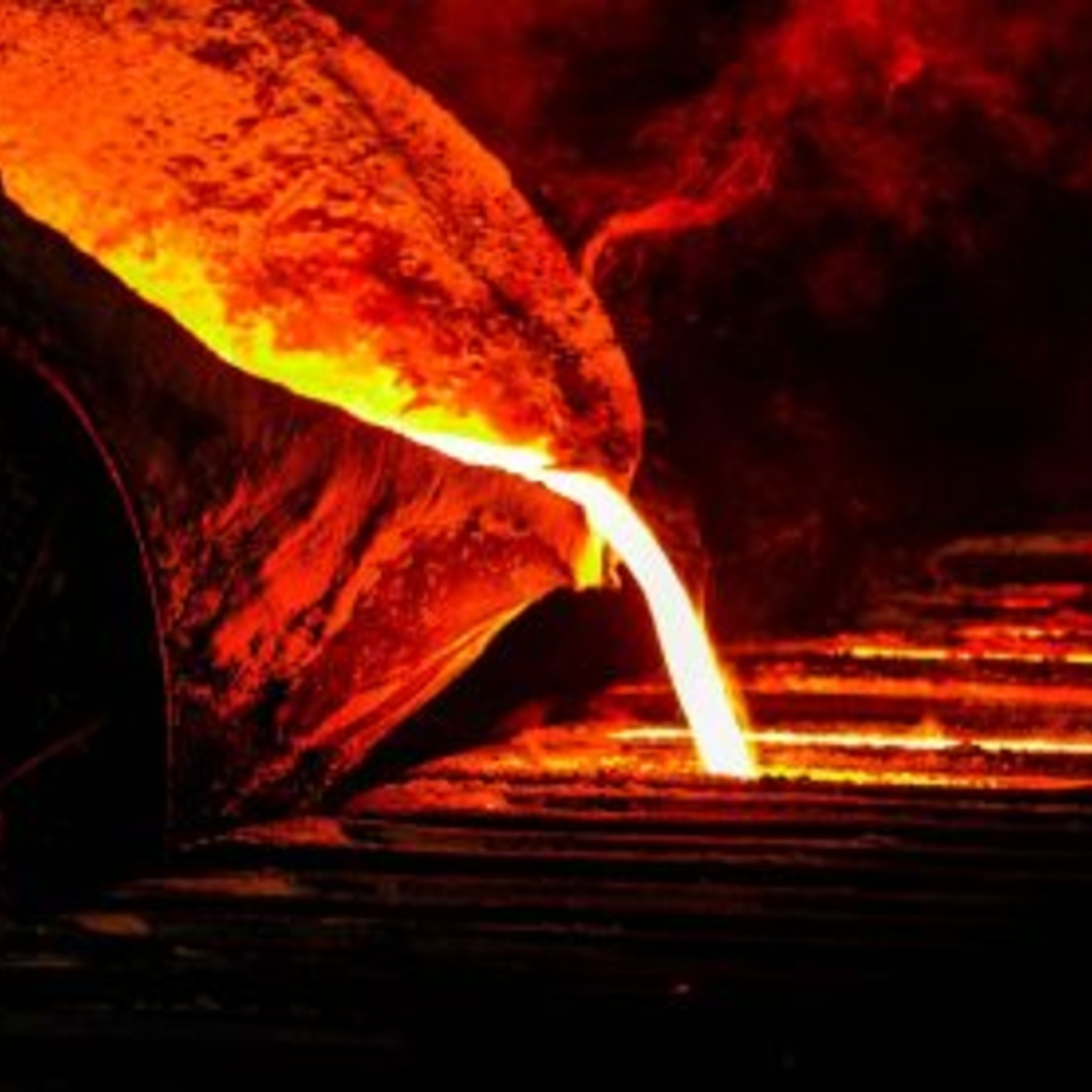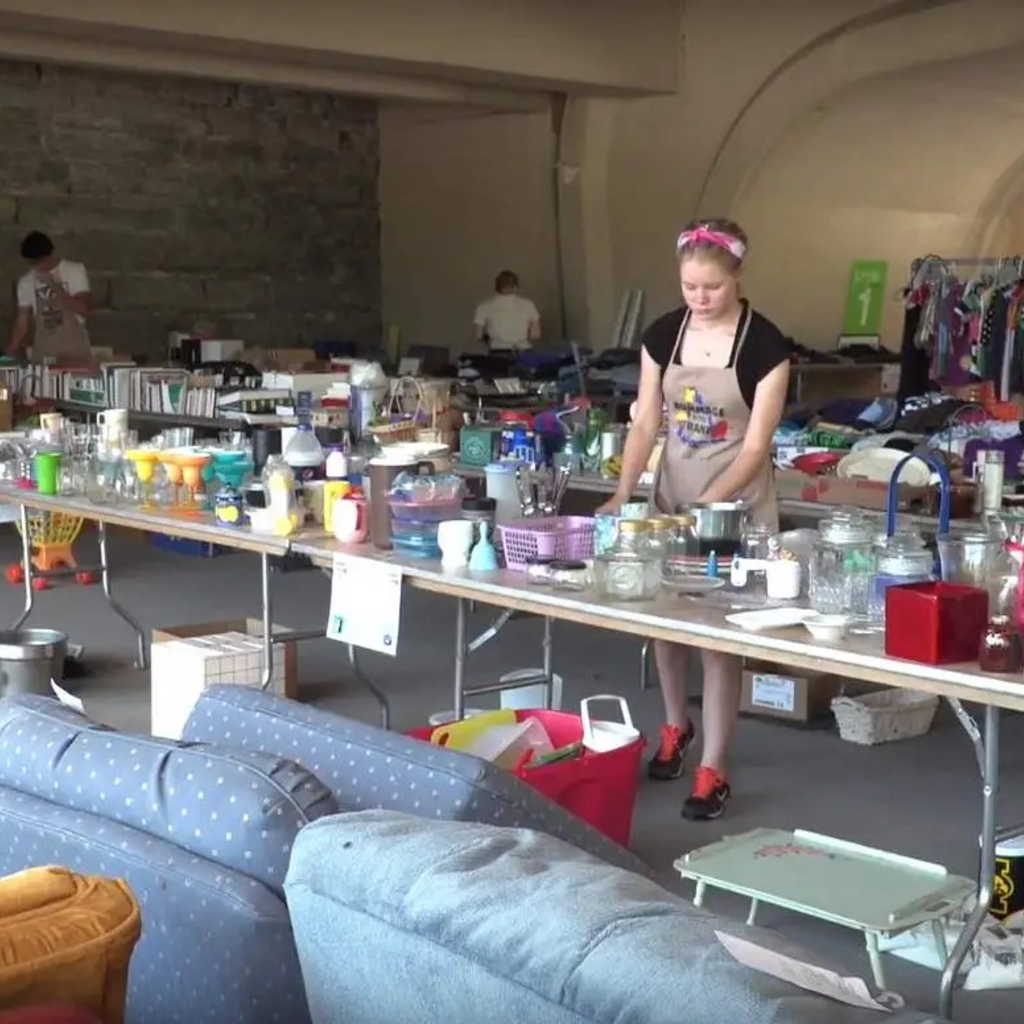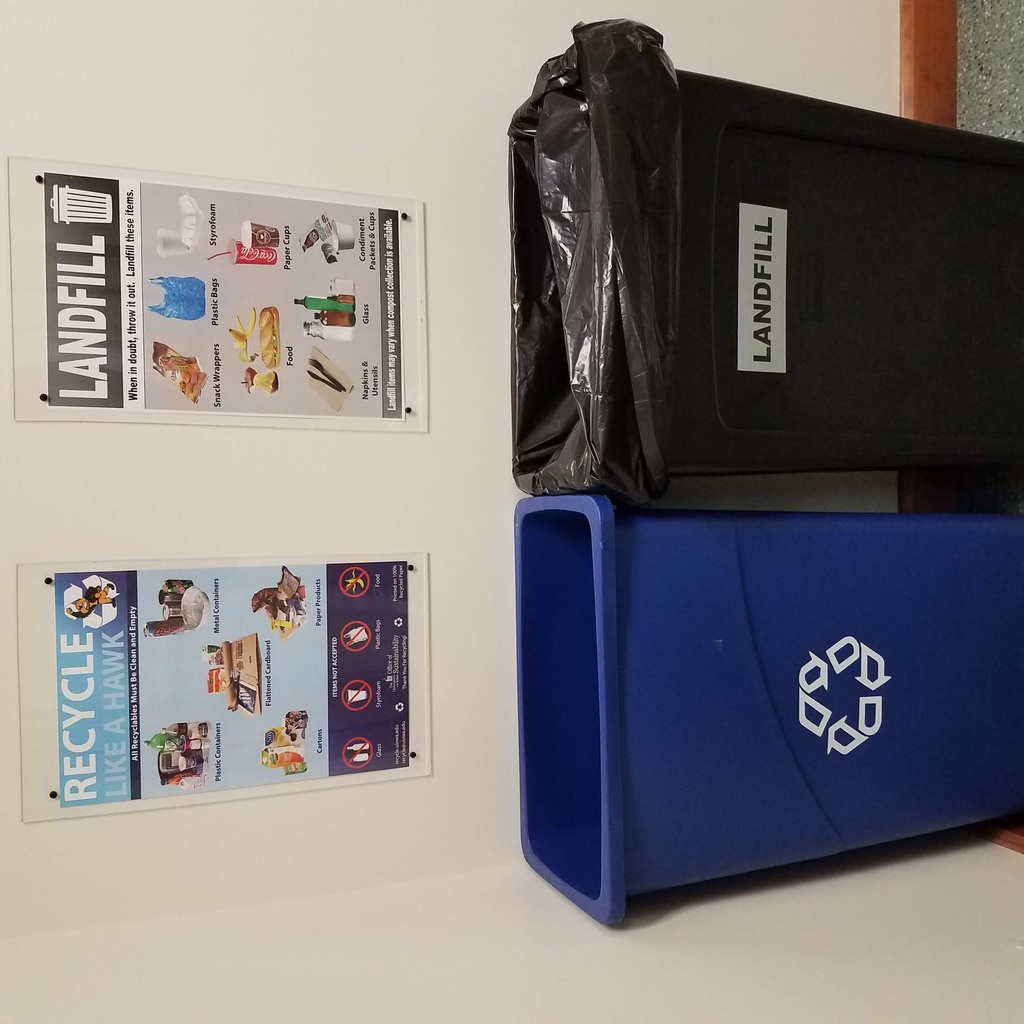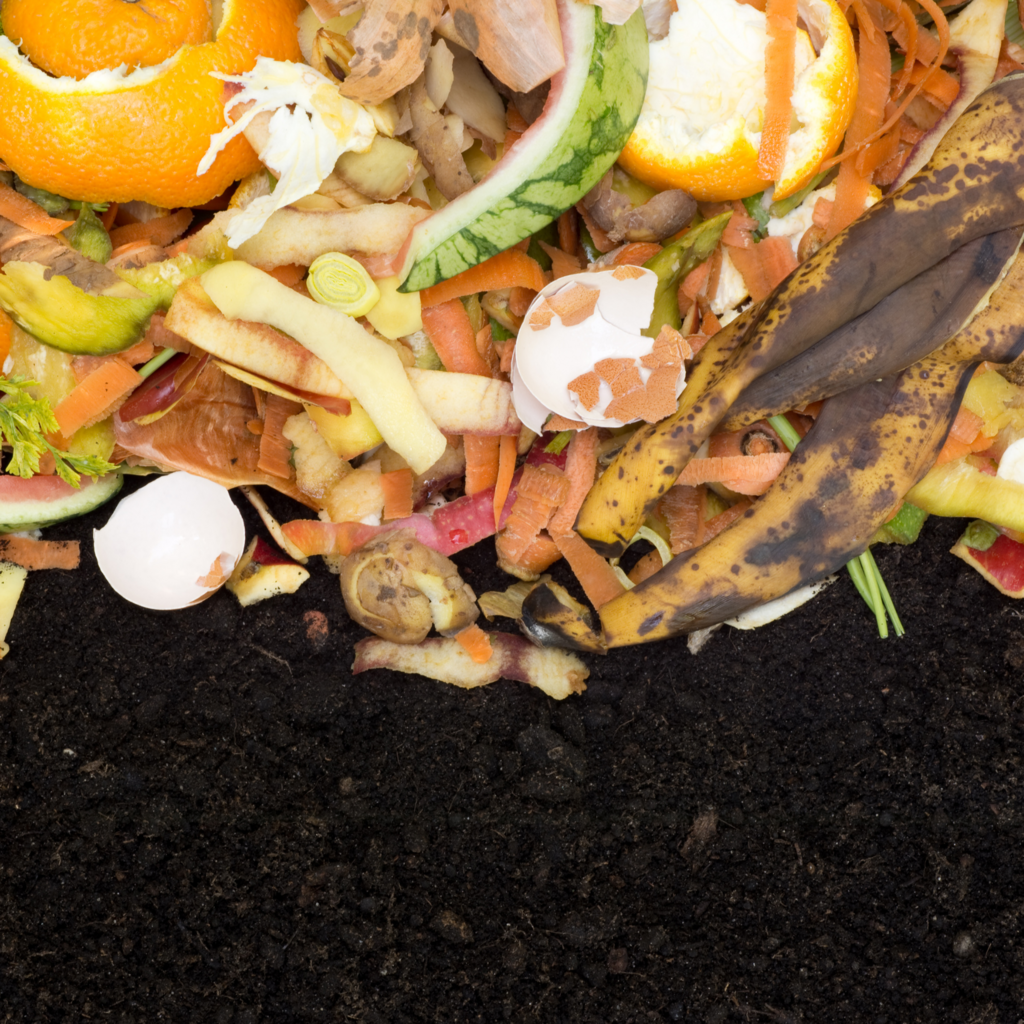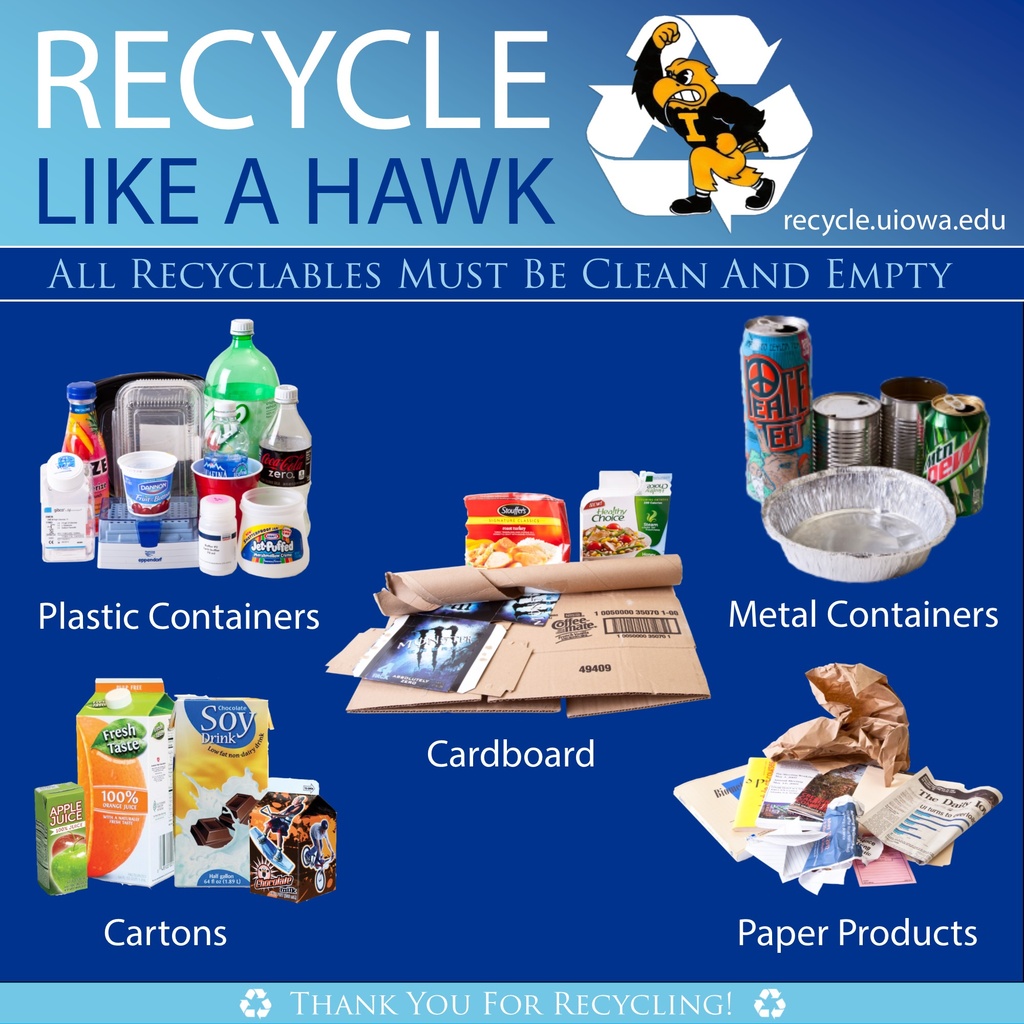Reducing Impacts From Waste
Waste has significant environmental, financial, and social impacts. Before products reach our shopping carts, they have already caused considerable impacts through resource extraction, manufacturing, and transportation. At the end of a product's life, whether it goes to a landfill, compost facility, or recycling center, it continues to affect the environment, economy, and society.
The best way to reduce these impacts is to consume less. By reducing consumption, we lessen the need for resource extraction and avoid pollution from manufacturing and transportation. Reusing items is the next best option, as it extends their life and reduces the need for new raw materials. Recycling and composting are lower priorities because they still require resources to process waste into new products and generate pollution.
How to Recycle
After reducing and reusing, recycling is one of the easiest things you can do to make UI more sustainable. Whether you are walking through various buildings, living in a residence hall, working in an office, or attending an event, recycling options are available everywhere, all of the time.
Recycle in Residence Halls
Learn More
Go to the Residence Hall Recycling webpage.
Recycle in Offices and Buildings
Learn more
The University of Iowa uses a standardized set of recycling bins for the collection of recyclable materials on campus. It is important to keep our recycling bins consistent across campus so that our students, employees, and visitors can recognize recycling bins anywhere on campus.
The bins below meet our standardized criteria. Please work with your custodial staff to order appropriate containers for your office/building.
| Tiny Trash Bin (0.75 gallons) |

|
| Rubbermaid Deskside Recycle Container (7 gallons) |
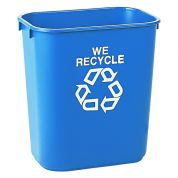
|
| Rubbermaid Slim Jim Recycle Container (23 gallons) |
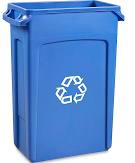
|
| Rubbermaid Round Recycling Container (32 gallons) |
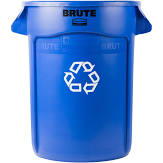
|
| Rubbermaid Square Recycling Container (40 gallons) |
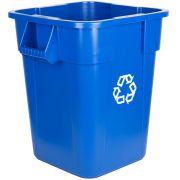
|
| Blue Toter Recycling Cart (64/96 gallons) |
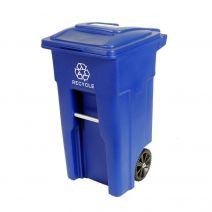
|
Recycle Like a Hawk Stickers (6 inch) Contact recycle@uiowa.edu to request stickers. |
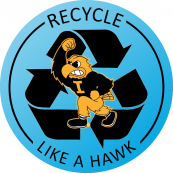
|
Recycle at Events
Learn more
Visit our Sustainable Events page to learn more.
Recycle Off-Campus
Learn more
Coralville Off-Campus Recycling
The City of Coralville provides recycling services for single family and duplex housing. Learn more.
Iowa City Off-Campus Recycling
The City of Iowa City provides landfill, recycling, and compost collection to all Iowa City residential buildings with four or less units. Apartment buildings with more than four units are serviced by private waste haulers contracted by the landlord. In November 2016, an apartment recycling ordinance was passed to increase the availability of recycling for Iowa City residents. This stated that landlords need to offer on-site recycling for tenants in order to renew their rental permits. Over the last few years, City staff have been working to bring rental properties into compliance with the ordinance. Learn more.
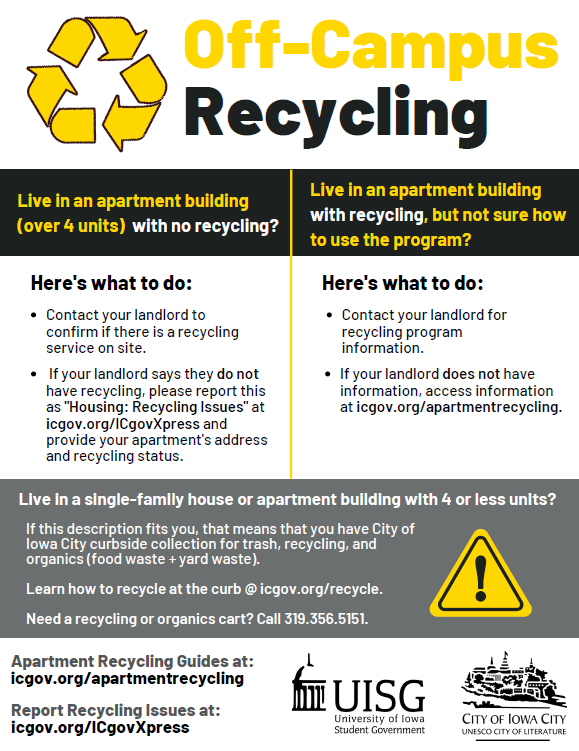
Options for Hard-to-Recycle Items
Learn more
You can keep hard-to-recycle items out of the landfill by finding other reuse and recycling options.
- University Property - UI Surplus resells or recycles 1 million+ pounds of University-owned items each year
- Ink and Toner Cartridges - General Stores recycles ink and toner cartridges. Simply send them via Campus Mail to General Stores, 183 MBSB
- Universal Waste - UI Environmental Health & Safety handles University-generated items classified as Universal Waste (e.g., rechargeable batteries, CFL bulbs, ballasts).
- Personal Waste - The University of Iowa is not responsible for disposal of personal waste. Below are links to disposal options for:
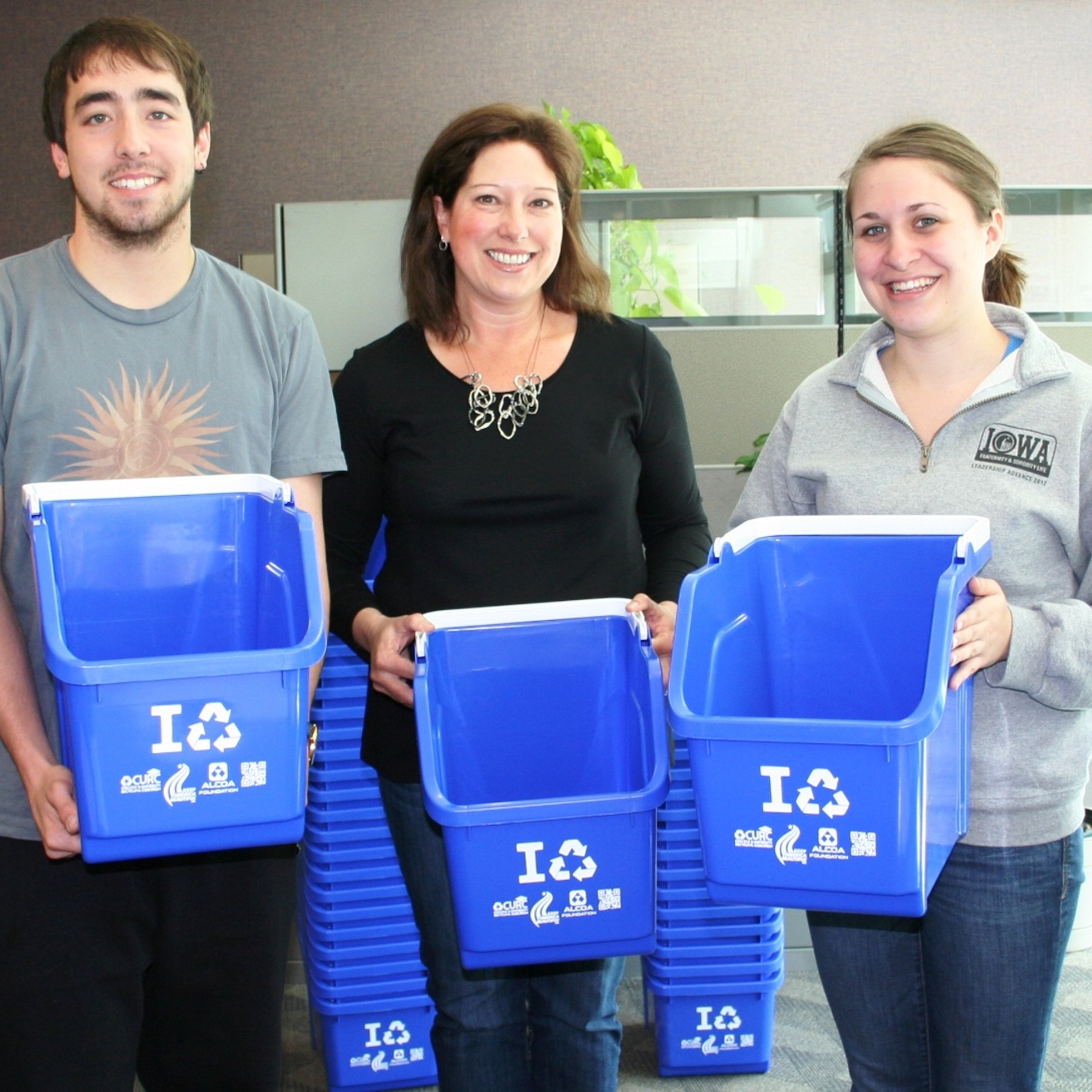
Where Does My Recycling Go?
1. You Recycle
When you place an item in the recycling bin, you help keep valuable commodities out of landfills while also conserving natural resources used to make new products. Be sure to recycle everything you can using the University's easy single-stream system. Single-stream recycling means you can put all recyclables (e.g., paper, cardboard, plastic containers, metal containers) all in one bin, no sorting necessary.
2. UI Custodial Staff Collects Recyclables
University of Iowa custodians empty recyclables from communal containers and take the materials to the exterior recycling dumpster or cart to await collection.
3. Waste Management Hauls Recyclables
Waste Management has trucks that drive around campus collecting all of the recyclables from the exterior recycling dumpsters and carts. Once a truck is full, it takes the recyclables to a Materials Recovery Facility (MRF) in Cedar Rapids.
4. Everything Gets Sorted
Once at the MRF, a combination of automated machinery and manual laborers sort through the mixed recyclables and separate materials into different categories. Non-recyclable items (aka, contaminants) are removed during the sorting process. However, they can cause problems at the MRF, so it's important to minimize contamination by recycling right.
The recyclables are dumped as a mixture onto the tipping floor and fed onto an inclined conveyor belt. As the materials proceed, ferrous metals such as soup cans are pulled out by a magnet. Aluminum is non-ferrous but does react to the electrical charge of a spinning magnet called an eddy current. When the aluminum comes into contact with the eddy current, the aluminum literally jumps off the conveyor belt into a collection bin!
Paper, cardboard, and plastic drop onto a separate conveyor for further separation. Line workers pull paper and cardboard off of the conveyor and toss them down chutes into separate collection bins. Then, plastics are either separated manually by resin type (which is indicated by the number inside the recycling arrows) or by special machinery.
Once separated, the materials are baled (or loaded into a large container) and sent on to be reprocessed into new products.
5. Manufacturers Buy Recyclables and Turn Them into New Products
Many businesses manufacture new products from recycled materials and they rely on you to provide the recyclables that keep their plants running. Each type of material is processed differently based on its unique characteristics. For example, plastic is shredded, cleaned, and shaped into pellets that are remelted into a variety of new plastic products. Aluminum and steel are shredded, cleaned, and melted into new aluminum and steel products. Paper and cardboard are recycled by mixing them with water to create a pulp slurry in a giant blender called a pulper. The pulp mix passes through cleaning equipment to remove any contaminants. Next, the pulp goes through an ink removal process and then is spread out over large screens and dried to become new paper and cardboard.
6. Consumers Buy Recycled Products
The final step is buying products made from post-consumer recycled materials. When you buy post-consumer recycled products, you create a demand for those products and strengthen the markets for the items you put in your recycling bin. After all, if no one buys recycled products, there's no reason to recycle in the first place.
